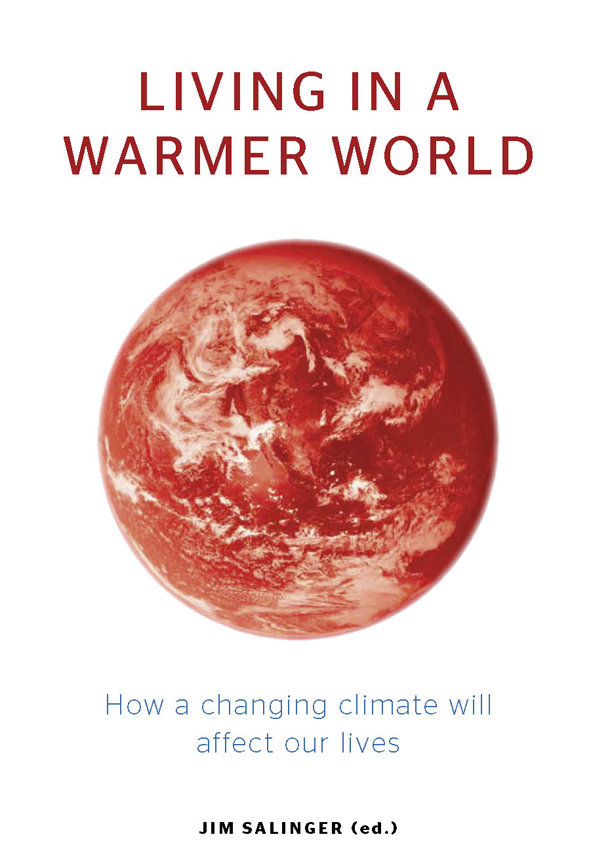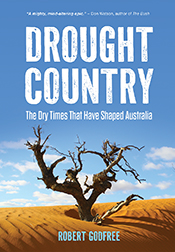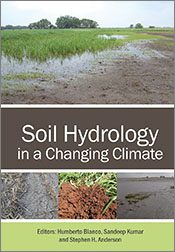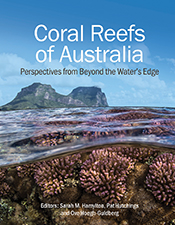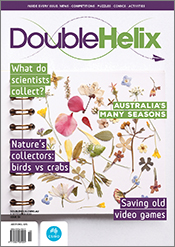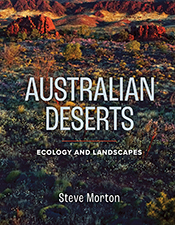Living in a Warmer World
How a Changing Climate Will Affect Our Lives
Edited by: Jim SalingerExamines how our changing climate will affect everyday life through access to food, water and even land.
Readable, relevant and fascinating, Living in a Warmer World examines how our changing climate will affect our everyday lives through access to food, water and even land, and how this will also impact on our health. More importantly, it looks at what science is doing to help us plan for and adapt to our future. This book looks beyond the debate over how and why, and describes what is actually happening as our world gets warmer. + Full description
Jim Salinger brings together some of the world's leading scientists to describe how a hotter planet is affecting our food supplies, fisheries and agriculture, access to fresh water and public health. From these specifics, a clearer picture emerges of how our planet is changing and how this will affect our lives.
- Short descriptionNews
Sales in Australia only. Elsewhere, this title is available through Bateman Publishing (external link).
Reviews
"For marine scientists, the chapter on Marine Fisheries by Alistair Hobday and Rising Sea Level and Our Coastal Society by John Church are essential reading - very interesting and thought provoking...Many often claim that Australian scientists punch above their weight in the international arena – and this book is no different"
Dr Gina Newton, AMSA Bulletin, August 2013
Details
Paperback | October 2013 | $ 35.00ISBN: 9781486300280 | 240 pages | 230 x 150 mm
Publisher: CSIRO Publishing
Features
- Brings together leading scientists and researchers to describe how a hotter planet is impacting on our food supplies, fisheries and agriculture, access to fresh water and our health, and, more importantly, what we are doing to plan for and adapt to our future.
Contents
ForewordPART I: WHAT IS NATURE TELLLING US?
1 Birds
2 Corals
3 Insects
PART II: WATER
4 Rainfall and water cycle, present and future
5 Glaciers
6 Desertification
7 Sea levels
8 Fresh water for urban populations
PART III: FOOD
9 Wheat
10 Pastures and rangelands
11 Viticulture
12 Livestock
13 Fisheries
PART IV: HEALTH
14 Heat waves and health
15 Climate and infectious diseases, present and future
OUR FUTURE IN A WARMER WORLD
17 Confidence, consensus and the uncertainty cops — tackling risk-management in climate change
18 Ethical Issues
Further reading and resources
Organisations
Glossary
Index
Authors
Jim Salinger CRSNZ has been involved for 35 years in research and analysis of climate change and variability and its impacts. He leads an international team examining the effects of climate change and its fluctuations on agriculture and fisheries, and agriculture on climate, and in 2012 was the Lorrey Lokey Visiting Professor, Woods Institute for the Environment at Stanford University. Jim is a prolific communicator and has received several awards, including the Nobel Peace Prize in 2007 awarded to the Intergovernmental Panel on Climate Change, to which he was a contributor, and other honours for the understanding of climate change.
Contributors:
Hon Helen Clark, United Nations Development Programme
Terry Root, Stanford University
Ove Hoegh-Guldberg, University of Queensland
Nigel Andrew, University of New England
John Terblanche, Stellenbosch University
Francis Chiew, CSIRO Land and Water
Jim Salinger, Stanford University
Trevor Chinn, Glaciologist
John Church, CSIRO Marine and Atmospheric Research
Samantha Capon, Griffith University
Mark Howden, CSIRO Climate Adaptation Flagship
Steven Crimp, CSIRO Ecosystem Sciences
Marco Bindi, University of Florence
Roberto Ferrise, University of Florence
Scott C. Chapman, CSIRO Plant Industry
Peter A. Lane, University of Tasmania
Brendan Cullen, University of Melbourne
Richard J. Eckard, Primary Industries Climate Challenges Centre
Matthew Bell, University of Melbourne
Richard P. Rawnsley, Tasmanian Institute of Agriculture
Karen M. Christie, Tasmanian Institute of Agriculture
Gregory V. Jones, Southern Oregon University
Alistair Hobday, Stanford University
Glenn McGregor, University of Auckland
Anthony J. McMichael, Australian National University
Stephen H. Schneider, Stanford University
Jonathan Boston, Victoria University of Wellington
Jan Sinclair, Massey University


